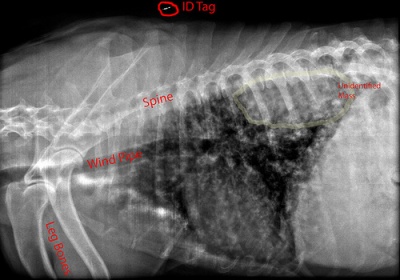
Myositis is the the inflammation of one or more muscles. In its many forms it can affect all living creatures. It can be difficult to diagnose and is painful and usually indicates an underlying illness. While there are different forms of myositis, the most common is masticatory myositis involving the muscles used for chewing.
There can be a number of causes of myositis including parasitic infection such as Ehrlichia, an immune disorder, viral infection, underlying illnesses and diseases such as cancer, a result of some medications, vitamin deficiency.
Symptoms depend on the muscles involved. There can be swelling, atrophy, difficulty chewing and swallowing, vomiting fluid or food, stiff gait, swollen, sunken or protruding eyes, muscle pain and weakness.
Your veterinarian can diagnose myositis through a muscle biopsy, complete blood count, urinalysis, titers, x-rays, ultrasound, etc.
Treatment involves finding the underlying cause of myositis. Preventing bed sores and wounds in animals that are unable to move as well as administering fluids helps keep the animal comfortable. Steroids are often recommended, but not for long-term use due to unwanted side effects.
If the underlying cause of myositis is successfully treated, the prognosis is fair. Some animals may require medication for all their lives.



